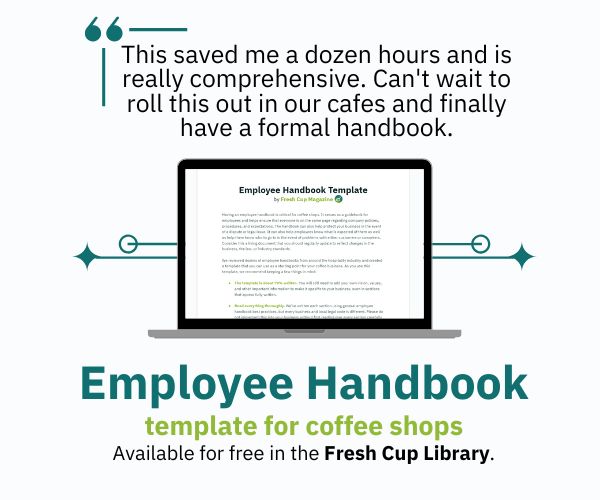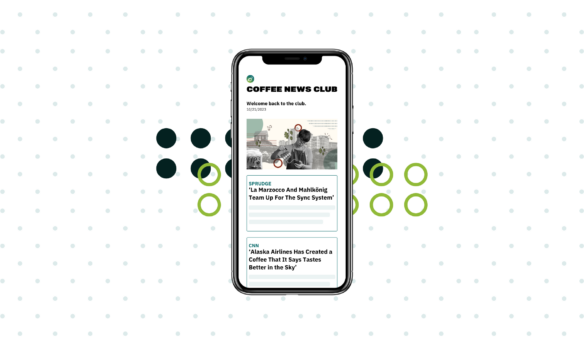Are we all just destined to drink coffee at home from now on? Are we doing enough to combat climate change to preserve the future of coffee? We ask these questions and pour one out for PBR’s Hard Coffee.
Let’s get to it.
‘Consumers to Ditch Cafes for Coffee at Home Amid Rising Prices, Says ICO’ – via Reuters
The head of the International Coffee Organization (ICO) predicts more consumers will drink their coffee at home rather than in cafes as a cost-saving measure due to inflation and recession fears.
In an interview with Reuters, ICO executive director Vanusia Nogueira attributes her forecast to fluctuations in coffee supply reserves. She says the global coffee supply is down, sharing that “we have many climate problems in the top producing regions,” but Nogueira notes that demand is still high despite rising prices. The article doesn’t go into too many details but seems to imply that if supplies are low but demand high, consumers will simply look for low-cost coffee options, like abstaining from visiting cafés.
According to ICO statistics, total production for the 2021/22 coffee year was down 2% from the previous year, while global consumption rose more than 3%. While Nogueira expects prices and demand to remain stable next year, changing consumption patterns could alter the landscape for specialty coffee producers and companies.
“I don’t think there will be an impact in terms of volumes,” Nogueira said, “but in the way coffee is drunk and in the quality, people are going to lower the quality of what they drink and change where they drink it.”
‘RIP Pabst Blue Ribbon Hard Coffee (2019-2022)’ – via Sprudge
Back in the day (2019, to be precise), hard coffee products were all the rage. Every self-respecting alcohol company was jumping on the bandwagon, from Jameson, Jäegermeister, and Kahlúa, to Guinness and Patrón (although the Bacardi-owned brand discontinued its tequila coffee last year). Even some coffee companies like La Colombe got in on the act.
And they were popular too: according to data from research firm Nielsen CGA, sales of spiked coffee rose 11,000% from mid-2019 to July 2020. It was, to quote Sprudge, “the golden era for the hangover aficionado looking to get drunk and caffeinated all at once.”
Probably the most notable entry to this weirdly specific market was Pabst Blue Ribbon (PBR) with Pabst Hard Coffee. CNN wrote about it. Food & Wine reviewed it. Several publications tried it “so you don’t have to,” which says a lot. It has 45,000 ratings on the beer review site Untappd (with a solid average of 3.9 out of five).
However, all good things must end, and it looks like Pabst is retiring this cult hero—although the company has yet to comment on the reported discontinuation. While it is still the market leader in its category, per Beverage Digest, sales for Pabst Hard Coffee have fallen almost 40% in 2022, while the overall hard coffee segment is down 33% as of September.
Why the fall? Beverage Digest posits that consumers are moving away from hard coffee, with its low alcohol content, to spirit-based canned cocktails, which pack a boozier punch. Or, as Sprudge puts it, Pabst Hard Coffee’s fall is because “it doesn’t get you blotto fast enough.”
More News
‘New York’s Blank Street Acquires Over Under’s Seven London Stores’ – via World Coffee Portal
‘L&K Coffee Agrees to $6.15 Million Settlement in Kona Labeling Suit’ – via Daily Coffee News
‘Dunkin’s New Loyalty Rewards Program Has Outraged All Of New England’ – via Sprudge
‘Probat Introduces Hydrogen-powered Roaster at Connecting Markets 2022’ – via Global Coffee Report
‘Starbucks Illegally Asked for Cops to Disperse Pro-Union Staff, Judge Says’ – via Bloomberg
The Week in Coffee Unionizing
A former Starbucks manager in New York testified that he was instructed to single out and target pro-union employees for non-organizing reasons. In his statement before a National Labor Relations Board judge in August, David Almond claimed that his superiors at the company “listed names of employees the company had determined supported the union, and told him to punish them.”
In one instance, Almond was told to go through the files of a long-term worker, who Almond described as “a great employee,” to find some infraction that could be used against them. Other superiors instructed him to follow around an employee who appeared to be holding a pro-union poster. A district manager told him to start ensuring a manager was always at the store to “discourage union chatter.”
Starbucks denies that Almond was directed to target or surveil employees. At the hearing, Starbucks’ attorney told the judge that decisions on disciplinary action were taken “very carefully” and claimed that organizers are highlighting worker firings “to further galvanize support for the union locally and nationally.”
Almond resigned from Starbucks in January. “I didn’t want to do illegal stuff,” he told the NLRB judge. “I’ve worked my entire life to build up a career of integrity, and I was not going to allow Starbucks to take that from me.”
Coffee and the Climate Crisis
A heating planet will eventually devastate global coffee production, and the tipping point is getting closer.
New research from Australia suggests that, even if current commitments to curb emissions are met, coffee production will “rapidly decline in countries accounting for 75% of the world’s arabica coffee supply.”
Arabica coffee is a sensitive plant that responds poorly to stressors such as increased temperature or frost. Rising temperatures and erratic weather patterns are already causing difficulties for coffee producers worldwide, from Brazil to Kenya to Indonesia.
This new research measured how hot and dry the air is by looking at the Vapor Pressure Deficit, which tells us how much water is sucked out of a plant. Researchers say this gives a much clearer picture of how sensitive arabica coffee is to atmospheric changes. “We found once vapor pressure deficit gets to a critical point, then arabica coffee yields fall sharply,” they write.
After reaching that critical point, coffee yields can plummet, losing about 400 kilograms per hectare, which is 50% lower than the long-term global average. These vapor pressure deficit thresholds have already been crossed in Kenya, Mexico, and Tanzania, and further warming could see big producers like Brazil, Colombia, and Ethiopia exceed the threshold.
While the researchers mention some options for adaptation—for example, increasing irrigation to help slow evaporation or switching to hardier species that can better handle temperature fluctuations—they note that these all carry costs or risks, and their conclusion is bleak. “There is only so much adapting we can do,” they write. “Our research provides further impetus, if we needed any, to cut net global greenhouse gas emissions.”
Is Coffee Good For You?
If you’re a coffee roaster, it might not be. A new study has shown that even brief exposure to a chemical compound released during the coffee roasting process, combined with a second aggravating factor such as the flu, can cause damage to the lungs.
The chemical compound diacetyl has long been used as an ingredient in flavored coffee and popcorn products—in fact, the lung disease obliterative bronchitis is also known as “popcorn lung” because of its prevalence among workers at factories that make microwave popcorn.
Diacetyl also occurs naturally during the coffee roasting process. Now, researchers at the University of Rochester Medical Center in New York have used mice to show a link between diacetyl inhalation and lung damage when combined with a secondary exposure, even if exposure were short-term.
“We found that a single exposure to diacetyl for short periods of time did not result in much lung damage,” said lead author Matthew D. McGraw in an announcement. “But when mice are exposed to another common environmental exposure, like flu, the double hit can cause airway disease similar to what we see with high-dose, long-term exposures to diacetyl.”
Numerous reports have shown a link between chronic exposure to diacetyl and lung problems in coffee workers. In one case, a former roaster was awarded over $5 million in damages after developing breathing problems linked to his job.
Further research is needed, the researchers caution, to explore how this one-two punch of diacetyl and influenza exposure affects humans rather than mice. McGraw’s team is working on a follow-up study in mice to determine how long after a flu infection it is safe to be exposed to diacetyl, which could help coffee roasters decide when it is safe to return to work following a bout of flu.
Beyond the Headlines
‘Hacked to Bits’ by Jaya Saxena
‘Starbucks’s Howard Schultz Isn’t a Caring Liberal Boss. He’s a Vicious Union Buster.’ by John Logan
‘What Is Meaningful Economic Sustainability in Coffee?’ by Cory Gilman
Coffee News Club is written by Fionn Pooler and the Fresh Cup editorial team.















